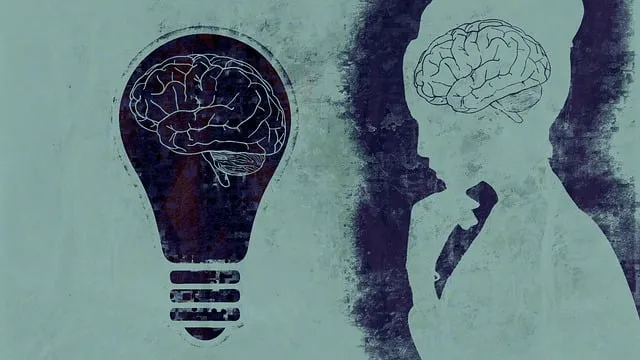Littleton Kaiser Permanente behavioral health services offers tailored mental wellness coaching programs that prioritize emotional well-being through personalized sessions using evidence-based techniques like Self-Awareness Exercises and Risk Management Planning. These programs cater to diverse populations, addressing short-term goals while promoting long-term emotional health. By understanding client needs, they create customized strategies incorporating self-care practices and mental wellness journaling. The curriculum integrates hard skills (stress management) and soft skills (emotional intelligence), using diverse delivery methods including individual coaching, group workshops, online resources, and digital tools. Regular assessments, cultural sensitivity, and continuous improvement ensure the program's effectiveness in addressing various mental health concerns, solidifying Littleton Kaiser Permanente's reputation as a leading provider of mental wellness coaching.
Mental wellness coaching programs are gaining prominence as powerful tools for personal growth. This comprehensive article explores the development of such programs, focusing on the innovative approaches by Littleton Kaiser Permanente Behavioral Health Services. We’ll delve into crucial aspects including understanding coaching fundamentals, the service provider’s role in program design, tailoring strategies to diverse audiences, effective curricula, and continuous improvement techniques. By examining these key elements, we aim to highlight how organizations like Littleton Kaiser Permanente are revolutionizing mental wellness support.
- Understanding Mental Wellness Coaching: A Comprehensive Overview
- The Role of Littleton Kaiser Permanente Behavioral Health Services in Program Development
- Identifying Target Audiences and Customizing Coaching Strategies
- Designing Effective Coaching Curricula and Techniques
- Implementation, Evaluation, and Continuous Improvement for Optimal Results
Understanding Mental Wellness Coaching: A Comprehensive Overview

Mental wellness coaching programs have gained significant importance in promoting emotional well-being and supporting individuals’ mental health journeys. At Littleton Kaiser Permanente behavioral health services, this approach is tailored to meet diverse needs. It involves guiding clients towards self-discovery and empowering them with tools for long-term mental wellness. Through personalized sessions, coaches help individuals develop resilience, enhance coping mechanisms, and cultivate a deeper understanding of their emotions and behaviors.
This comprehensive process incorporates various techniques, such as Self-Awareness Exercises, to help clients identify triggers and strengths. By fostering self-reflection, these exercises enable individuals to make informed decisions about their mental health. Moreover, Risk Management Planning is an integral part of the coaching process, equipping mental health professionals with strategies to mitigate potential risks and ensure client safety. With a focus on both short-term goals and long-term emotional Well-being Promotion Techniques, Littleton Kaiser Permanente’s behavioral health services aim to empower individuals to lead fulfilling lives.
The Role of Littleton Kaiser Permanente Behavioral Health Services in Program Development

Littleton Kaiser Permanente Behavioral Health Services plays a pivotal role in shaping innovative mental wellness coaching programs. With a commitment to enhancing community well-being, they actively contribute to the development of evidence-based interventions that cater to diverse populations. By leveraging their expertise in behavioral health, they conduct thorough research and analysis, ensuring programs align with current Mental Health Policy Analysis and Advocacy trends while addressing critical areas of need.
Their approach is further enhanced by a strong focus on Cultural Sensitivity in Mental Healthcare Practice, recognizing the importance of tailored support for various cultural backgrounds. Through collaborative efforts and community engagement, these services foster the development of coping skills that are both effective and culturally relevant, ultimately improving access to quality mental healthcare.
Identifying Target Audiences and Customizing Coaching Strategies

Identifying target audiences is a crucial step in developing effective mental wellness coaching programs. At Littleton Kaiser Permanente behavioral health services, understanding diverse client needs is key to tailoring support. Different individuals may require guidance tailored to their unique circumstances, such as students, working professionals, or those dealing with specific challenges like stress management or self-esteem improvement. Customizing coaching strategies means creating personalized plans that incorporate relevant Self-Care Practices and Mental Wellness Journaling Exercises.
For instance, a coaching program for young adults transitioning into the workforce might focus on building resilience and time management skills, while a group aimed at seniors could explore ways to maintain cognitive health and social connections. This tailored approach ensures that each participant receives valuable Self-Esteem Improvement strategies aligned with their goals and life stages, fostering a more inclusive and beneficial coaching experience.
Designing Effective Coaching Curricula and Techniques

When designing effective coaching curricula for mental wellness programs, such as those offered by Littleton Kaiser Permanente behavioral health services, it’s crucial to integrate a variety of evidence-based techniques. A well-rounded curriculum should focus on both hard skills and soft skills development. Hard skills include coping strategies like stress management, mindfulness, and relaxation techniques, which can be taught through interactive workshops, role-playing scenarios, and guided practices. Soft skills, such as emotional intelligence, effective communication, and problem-solving abilities, can be cultivated using case studies, group discussions, and reflective exercises.
Incorporating diverse delivery methods is key to engaging participants and catering to different learning styles. This might include individual coaching sessions, group workshops, online resources, and even a Mental Wellness Podcast Series Production to supplement formal education. By blending traditional teaching methods with innovative digital tools, like those used in Mental Health Education Programs Design, coaches can create an immersive and interactive experience that promotes deeper understanding and long-term behavioral change.
Implementation, Evaluation, and Continuous Improvement for Optimal Results

For optimal results in mental wellness coaching programs, implementation, evaluation, and continuous improvement are key components. Littleton Kaiser Permanente behavioral health services exemplify this through a structured approach that integrates best practices with innovative strategies. Regular assessments and feedback loops enable coaches to adapt their methods based on client progress and evolving needs. This dynamic process ensures that the program remains relevant and effective in addressing various mental health concerns, including anxiety relief.
Cultural sensitivity in mental healthcare practice is also integrated into this framework, reflecting the diverse backgrounds of clients served. By fostering an inclusive environment and tailoring interventions to individual preferences, these programs enhance positive thinking and overall well-being. Continuous improvement drives the integration of new research findings and therapeutic techniques, solidifying the program’s position as a leading provider of mental wellness coaching in the healthcare sector.
Mental wellness coaching programs, such as those developed by Littleton Kaiser Permanente Behavioral Health Services, offer valuable support for individuals seeking improved mental well-being. By understanding the core principles of coaching and tailoring strategies to specific audiences, these programs can be highly effective in fostering positive change. The implementation, evaluation, and continuous improvement processes are vital for optimizing results and ensuring the curriculum meets the evolving needs of participants. This comprehensive approach not only enhances individual resilience but also contributes to a healthier, more supportive community overall.






